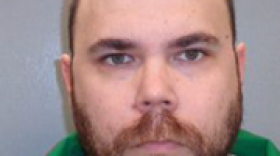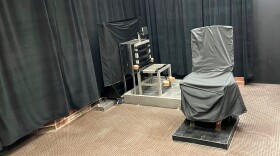-
Stephen Corey Bryant's execution was the state's fifth of the year and third by firing squad. South Carolina resumed inmate executions in September 2024 after a 13-year halt.
-
A South Carolina firing squad has executed a man who is the third person to die by that method in the state this year. Stephen Bryant was put to death Friday for killing three people in 2004. Bryant is the third person executed by firing squad in the state, where lethal injection and the electric chair are still legal. He also is the 50th man executed by South Carolina since the state restarted the death penalty 40 years ago.
-
Stephen Bryant, 44, is scheduled to die at 6 p.m. Friday by firing squad at a Columbia prison.
-
Bryant is set to be executed on Nov. 14 for killing a man in his Sumter County home.
-
Stephen Bryant, 44, will be the third man this year to die by South Carolina's newest execution method. His execution is set for Nov. 14.
-
COLUMBIA, S.C. (AP) — A judge in South Carolina has ruled a death row inmate who thinks most laws are unconstitutional is mentally competent and can be executed. Lawyers for Steven Bixby told the judge he couldn't adequately help them because of his beliefs including that citizens have an absolute right to defend their property to the death. The state Supreme Court had paused Bixby's execution to assess his mental competence. Bixby was convicted of killing two police officers in Abbeville in 2003. Judge R. Scott Sprouse noted Bixby cooperates with his lawyers and understands their role. Bixby’s lawyers can appeal the ruling.
-
COLUMBIA, S.C. (AP) — A judge is considering whether delusional beliefs about the legal system are enough to prevent a South Carolina prisoner from being executed. Steven Bixby, who was convicted of killing two police officers in 2003, submitted his own handwritten legal papers after a two-day hearing last month.
-
A South Carolina man sent to death row twice for separate murders has been put to death by lethal injection in the state’s sixth execution in nine months.
-
A federal judge doesn't plan to stop the execution of South Carolina inmate Stephen Stanko because the convicted man's lawyers didn’t have evidence of problems with the state’s lethal injection process.
-
South Carolina death row inmate Stephen Stanko has chosen to die by lethal injection after his lawyers say he is troubled by what appeared to be a lingering death of the last person in the state who was killed by firing squad.

Play Live Radio
Next Up:
0:00
0:00
Available On Air Stations









